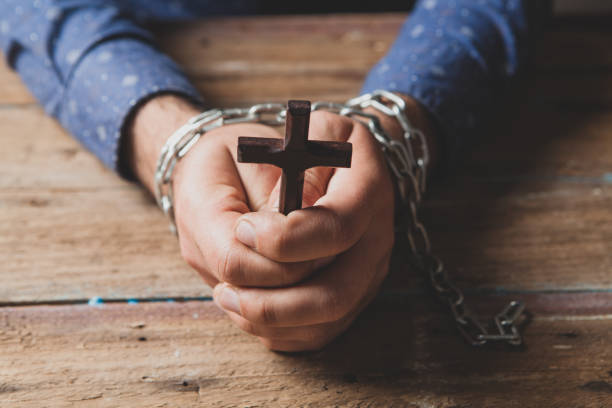Freedom of worship is enshrined in our Constitution as one of the most fundamental human rights. It allows individuals to exercise their conscience, follow their faith, and express their beliefs without fear of State interference. However, when freedom of worship is misused to exploit and harm others, the question arises: where does the line between religious freedom and accountability lie?
This question becomes particularly poignant for me, as a child of a pastor. My father, Bishop David Kalua, lived out the teachings of Jesus Christ with integrity, modeling the golden rule of treating others as you would like to be treated. For him, freedom of worship was sacred, but it never extended to infringing on the dignity of others. Thus, I am deeply intolerant of those who misuse religion for exploitation, as we have seen in recent cases in Kenya.
Earlier this month, the arrest of a pastor in Tigania, Meru, for a decade-long spree of abuse against women at his church, sent shockwaves through the country. He is accused of defilement, rape, and administering unlawful oaths, exploiting his followers in the name of religion. This is just one example of how religious spaces, which should be sanctuaries of peace and compassion, can be turned into arenas of predatory behavior. Worse still, such exploitation can persist for years without accountability.
The disturbing events in Tigania echo the horrifying revelations from the Shakahola massacre in Kilifi County, where over 400 bodies were exhumed, victims of Pastor Paul Mackenzie’s brainwashing tactics. Mackenzie, who led the Good News International Church, radicalized his followers, leading them to starve themselves to death. His actions, which went unchecked for years, exposed the dark underbelly of unregulated religious organizations in Kenya.
These cases have prompted a much-needed reflection on how freedom of worship must coexist with legal oversight. The proposed Religious Organisations Bill, 2024 is a direct response to these atrocities, aiming to prevent the proliferation of predatory and extremist religious groups. While the Bill seeks to protect the right to worship, it also introduces measures to regulate religious organizations, ensuring they operate within the confines of the law and respect the dignity of all people. Those who exploit their followers, whether through brainwashing, sexual abuse, or coercion, are not exercising religious freedom but violating the very principles that freedom is built on.
One of the Bill’s most critical components is the establishment of the Office of the Registrar of Religious Organisations (ORRO), which will be tasked with registering and regulating religious groups. This move is designed to prevent the exploitation and abuse of worshippers, requiring religious organizations to uphold transparency, accountability, and respect for human rights. Churches, mosques, and other religious bodies will be required to maintain proper financial records and ensure they are not using their platforms for coercion, misrepresentation, or undue influence in religious conversions. Safeguards must however be put in place to avoid a scenario where deserving religious registrations are frustrated arbitrarily or due to bureaucratic bottlenecks.
As someone deeply rooted in faith, I believe that the church must be a place of love, refuge, and justice. My father just as many other honorable church leaders, lived and continues tp live by these principles, understanding that true worship cannot coexist with exploitation. While religious leaders hold positions of immense influence, that influence must never be weaponized against the vulnerable. Instead, it must reflect the compassion and dignity of the teachings we claim to uphold.
The Religious Organisations Bill, 2024 is not perfect, but it is a step toward ensuring that religious freedom is exercised responsibly. It challenges us to rethink how we balance freedom with accountability, and how we protect the vulnerable without compromising the sacred right to worship. As we move forward, we must ensure that places of worship remain what they were always meant to be – safe spaces, not toxic places. Think green, Act green!



